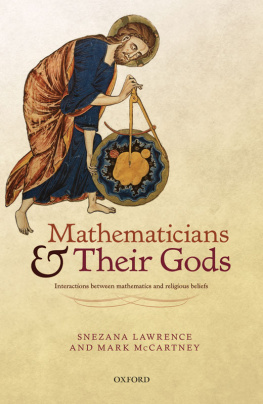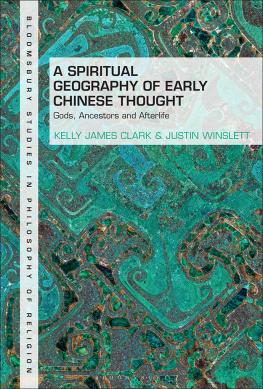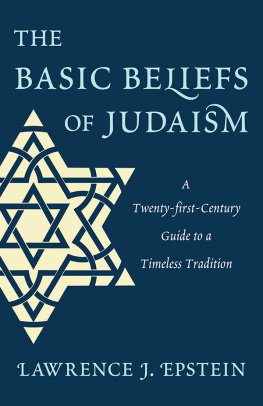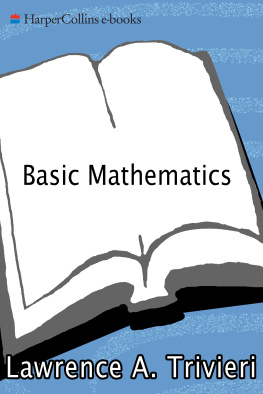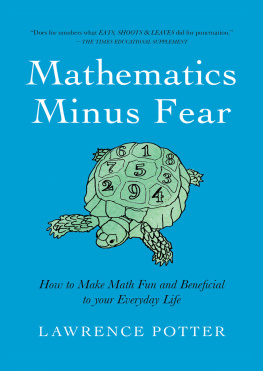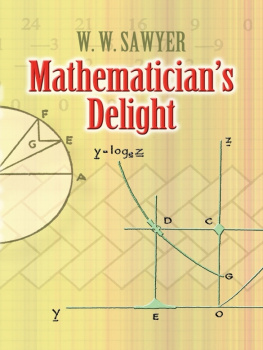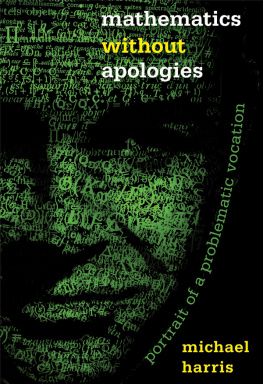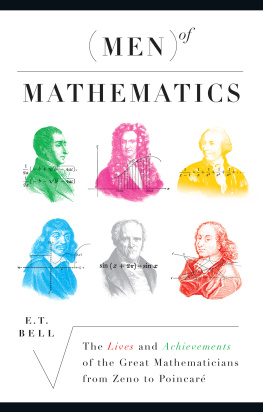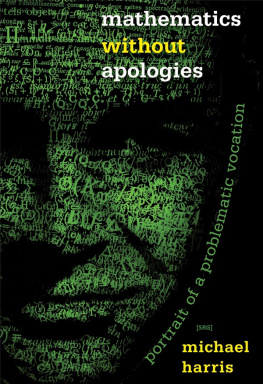Snezana Lawrence - Mathematicians and Their Gods: Interactions Between Mathematics and Religious Beliefs
Here you can read online Snezana Lawrence - Mathematicians and Their Gods: Interactions Between Mathematics and Religious Beliefs full text of the book (entire story) in english for free. Download pdf and epub, get meaning, cover and reviews about this ebook. year: 2015, publisher: Oxford University Press, genre: Religion. Description of the work, (preface) as well as reviews are available. Best literature library LitArk.com created for fans of good reading and offers a wide selection of genres:
Romance novel
Science fiction
Adventure
Detective
Science
History
Home and family
Prose
Art
Politics
Computer
Non-fiction
Religion
Business
Children
Humor
Choose a favorite category and find really read worthwhile books. Enjoy immersion in the world of imagination, feel the emotions of the characters or learn something new for yourself, make an fascinating discovery.
- Book:Mathematicians and Their Gods: Interactions Between Mathematics and Religious Beliefs
- Author:
- Publisher:Oxford University Press
- Genre:
- Year:2015
- Rating:4 / 5
- Favourites:Add to favourites
- Your mark:
- 80
- 1
- 2
- 3
- 4
- 5
Mathematicians and Their Gods: Interactions Between Mathematics and Religious Beliefs: summary, description and annotation
We offer to read an annotation, description, summary or preface (depends on what the author of the book "Mathematicians and Their Gods: Interactions Between Mathematics and Religious Beliefs" wrote himself). If you haven't found the necessary information about the book — write in the comments, we will try to find it.
Snezana Lawrence: author's other books
Who wrote Mathematicians and Their Gods: Interactions Between Mathematics and Religious Beliefs? Find out the surname, the name of the author of the book and a list of all author's works by series.
Mathematicians and Their Gods: Interactions Between Mathematics and Religious Beliefs — read online for free the complete book (whole text) full work
Below is the text of the book, divided by pages. System saving the place of the last page read, allows you to conveniently read the book "Mathematicians and Their Gods: Interactions Between Mathematics and Religious Beliefs" online for free, without having to search again every time where you left off. Put a bookmark, and you can go to the page where you finished reading at any time.
Font size:
Interval:
Bookmark:


Great Clarendon Street, Oxford, OX2 6DP,
United Kingdom
Oxford University Press is a department of the University of Oxford. It furthers the Universitys objective of excellence in research, scholarship, and education by publishing worldwide. Oxford is a registered trade mark of Oxford University Press in the UK and in certain other countries
Oxford University Press 2015
The moral rights of the authors have been asserted
First Edition published in 2015
Impression: 1
All rights reserved. No part of this publication may be reproduced, stored in a retrieval system, or transmitted, in any form or by any means, without the prior permission in writing of Oxford University Press, or as expressly permitted by law, by licence or under terms agreed with the appropriate reprographics rights organization. Enquiries concerning reproduction outside the scope of the above should be sent to the Rights Department, Oxford University Press, at the address above
You must not circulate this work in any other form and you must impose this same condition on any acquirer
Published in the United States of America by Oxford University Press 198 Madison Avenue, New York, NY 10016, United States of America
British Library Cataloguing in Publication Data
Data available
Library of Congress Control Number: 2014956601
ISBN 9780191007552
Printed in Great Britain by
Clays Ltd, St Ives plc
Links to third party websites are provided by Oxford in good faith and for information only. Oxford disclaims any responsibility for the materials contained in any third party website referenced in this work.
Preface
The overlap between mathematics and theism may seem at first sight an unpromising topic for a book. But as the many contributors to this volume show, the intersection between the two provides fertile ground both for historians of mathematics and of theology, and for the interested general reader. The chapters have been written by a range of subject experts, who have given willingly of their time and their knowledge. They have also submitted with good humour and patience to our various editorial queries, suggestions, and proddings, and we thank them for their enthusiasm for, and commitment to, the project.
The chapters of the book are ordered broadly chronologically and thus the work can be read beginning with the Pythagoreans and then meandering through a range of times, places, and people, to end with Kurt Gdel. However, each chapter is independent of the others and so the reader can feel free to dip in to the book at whichever point he or she finds most interesting. Hopefully, such a reader will then be enticed into the other chapters.
As is noted in the introductory chapter, this book makes no attempt to be comprehensive. The most glaring omission is of Islamic mathematics, with the centre of gravity of the book being within the Christian West. The bias is benign and can be accounted for by the interests of the editors, and the desire to keep the scale of the book within manageable proportions. If there is a benefit of this bias, it is that it illustrates that even within such a restricted field of study the interactions between religion and mathematics are surprisingly rich.
Snezana Lawrence & Mark McCartney
March 2015
Mark McCartney
It is unfortunate that in popular thought the prevailing description of the interaction between science and religion is one of warfare. God, in some circles it seems, is the enemy of progress, the person we lazily appeal to in order to fill the gaps in our current scientific knowledge, an outdated idea, a delusion, an intellectual non-subject. At best, religious belief is seen as a matter of private devotion which has nothing to do with public life. At worst, some quarters seem to want to take what may be called an Orwellian Animal Farm approach to the matter, replacing Snowball the pigs four legs good, two legs bad, with a version of scientism which states science good, religion bad.
And yet, dig down a little below the surface of popular assessment to scholarship on the history and philosophy of science, and a very different picture begins to appear. In academic circles the nineteenth-century conflict model to describe the interaction between science and religion has been rejected and replaced with what Andrew Gregory in
However, move from science to mathematics and the suggestion that there is an overlap with theism is likely to lead to puzzled looks. Linking algebra with the Almighty seems as sensible as trying to find common ground between botany and basketball. The famous story of Leonhard Euler (170783) confronting Denis Diderot (171384) at the court of Catherine the Great springs to mind: Diderot arrived at the Russian court in the 1770s and, it is said, spoke freely of his atheism. While Catherine was amused, her advisors suggested Diderot should have his atheistic wings clipped. Hence Euler, then at the St Petersburg Academy, was brought before the court and publically confronted Diderot with the statement Sir,  ; hence God exists Respond! Diderot, unable to answer, and humiliated by the laughter from all sides, left the court and immediately returned to France.
; hence God exists Respond! Diderot, unable to answer, and humiliated by the laughter from all sides, left the court and immediately returned to France.
The tale is, of course, apocryphal. It is amusing to imagine that the brilliant mathematician Euler would say such a thing, even more amusing that Diderot, editor of the Encyclopdie and well versed in mathematics, should have been taken in by it, and positively ridiculous that any such argument could make an impression on anyone. We may seek for links between God and the scientific description of the created order, but surely any connections we might wish to make between God and our equations will be as weak as Eulers fictitious remark?
However, it is precisely with the phrases scientific description and our equations that potential links between mathematics and theism are to be found.
Galileo Galilei (15641642), in his book The Assayer, famously stated that Philosophy is written in this grand book I mean the universe which stands continually open to our gaze, but it cannot be understood unless one first learns to comprehend the language and interpret the characters in which it is written. It is written in the language of mathematics, and its characters are triangles, circles, and other geometrical figures, without which it is humanly impossible to understand a single word of it; without these one is wandering about in a dark labyrinth.
He goes on to quip that:
A possible explanation of the physicists use of mathematics to formulate his laws of nature is that he is a somewhat irresponsible person. As a result, when he finds a connection between two quantities which resembles a connection well-known from mathematics, he will jump at the conclusion that the connection is that discussed in mathematics simply because he does not know of any other similar connection. It is not the intention of the present discussion to refute the charge that the physicist is a somewhat irresponsible person. Perhaps he is. However, it is important to point out that the mathematical formulation of the physicists often crude experience leads in an uncanny number of cases to an amazingly accurate description of a large class of phenomena. This shows that the mathematical language has more to commend it than being the only language we can speak; it shows that it is, in a very real sense, the correct language.
Font size:
Interval:
Bookmark:
Similar books «Mathematicians and Their Gods: Interactions Between Mathematics and Religious Beliefs»
Look at similar books to Mathematicians and Their Gods: Interactions Between Mathematics and Religious Beliefs. We have selected literature similar in name and meaning in the hope of providing readers with more options to find new, interesting, not yet read works.
Discussion, reviews of the book Mathematicians and Their Gods: Interactions Between Mathematics and Religious Beliefs and just readers' own opinions. Leave your comments, write what you think about the work, its meaning or the main characters. Specify what exactly you liked and what you didn't like, and why you think so.

